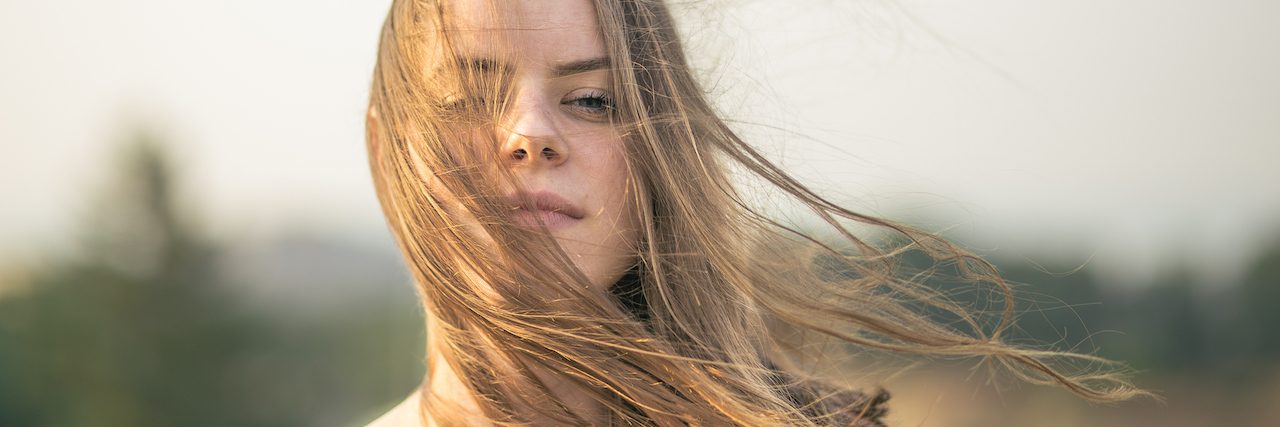When I became depressed, I was also anxious, stressed, sleep-deprived, eating terribly and poorly focused. It was an embodiment of the chicken/egg dilemma, as I had no way of knowing if poor sleep and a terrible diet were leading to my depressed and anxious state, or vice versa. Maybe they were all sadistic teammates, fueling each other. My limbs felt colder and heavier with each passing day, as if I was slowly turning into the world’s saddest statue. Any feelings of happiness and joy were reduced to tantalizing twitches.
As a young doctor and wellness professional, I logically knew I had to do something. Having been schooled in western medicine, I did what I thought the next best step. I saw a psychiatrist. My psychiatrist was nice enough, smart enough and put me on an antidepressant, the “standard of care.” She didn’t, however, give me any advice on sleep hygiene, diet or natural prevention tips. Still, I dutifully swallowed my pill every morning for the next five months. And I waited, and I waited, and I waited.
Then I stopped. I stopped, because I didn’t feel less depressed. I felt more tranquilized, as if my ability to express myself was a shoe stuck in gum. As a writer, the feeling was torturous. My mouth was constantly dry, as if it became a storage bin for invisible cotton balls. I constantly felt nauseous and lacked sexual desire, which did nothing for my diminished romantic life. I felt like the pills transformed me from a depressed blob to a soulless blob. They weren’t working for me and I had to find a different solution.
My search for a better answer stemmed from a quote from Oscar Wilde, one of my favorite writers. He said, “Nothing can cure the soul but the senses, just as nothing can cure the senses but the soul.” He’s Irish, I’m Irish, we get each other. Perhaps if I figured out how to replenish my senses, I’d get my soul back. While there is an art to medicine, there is an awful lot of medicine in art.
To address “taste,” I researched the best diet for depression. The results of my research guided me to switch to a Mediterranean-based diet. I also made sure I ate a lot of tasty dishes with omega-three fatty acids, Magnesium, Vitamin B12 and Tryptophan.
Next I worked on remodeling my sense of smell, which introduced me to the amazing and underutilized world of aromatherapy. Many plants and herbs produce naturally uplifting aromas, and I began using the plants in my cleaning products, growing them in my garden and rubbing the leaves on my neck or wrists as a homemade “antidepressant” perfume. My antidepressant aromas included: Rose, lavender, lemon, bergamot, orange, sandalwood, jasmine and mandarin. I used to joke that my favorite line of perfume was by “The Woods.”
In search of giving my eyes a soul-nourishing makeover, I found myself fascinated by nature therapy and color therapy. Color therapy is rooted in the theory that different colors stimulate different moods. For example, oranges and greens can be uplifting. While I don’t think Crayola can cure depression, I think adding a little color to one’s life can’t hurt. Nature therapy is based on the idea that being in a natural green environment or even looking at pictures of natural scenery has an antidepressant effect. There is legitimate research to support nature therapy. So I went on more road trips outside the business-colored boundaries of my vertical concrete human trap (New York City) in search of nature. I found nature and I felt better in nature. I even photographed nature so I could hang it up in my apartment and be reminded of its mysterious soothing properties. Although my relationship with nature was long-distance, it was one of those rare long-distance relationships worth nurturing.
For “touch,” I focused on the power of human touch. There is something magical about being held by a significant other or hugged by a good friend. Perhaps the magic is as simple as feeling less alone. Current society doesn’t foster deep, meaningful relationships, so, for your heart and your brain, learn the difference between a greedy grab and a magic touch.
Next up, my ears. On my search to rejuvenate my sense of hearing, I noticed that I felt better in nature while listening to nature sounds. Nature sounds made me feel less depressed, more relaxed and filled me with a much-needed dose of calm. I lived in the city. The chaotic chorus of constant construction, impatient horns honking, and overworked people grumbling and mumbling made me feel stressed and anxious. I began listening to nature sounds on a regular basis. My pursuit for a more soulful sense of hearing also introduced me to the world of binaural beats, isochronic tones and specific sound sequencing. Research has shown that these sounds can actually change your brain, immediately. I began listening to different combinations of binaural beats and isochronic tones, and then, eventually, I started working with a team of scientists in Germany and creating my own soundtracks. Hence, ZENTones were born.
I don’t know for sure what Oscar Wilde meant by his quote. He’s dead, so I can’t ask him. All I know is that I interpreted his art in a way that saved my soul, and, in essence, my life. There are times I still struggle, and I probably always will, but now it is a struggle that I can embrace and handle. Perhaps a makeover of the senses is something more people should consider when the journey seems unbearable.
Editor’s note: Please see a doctor before starting or stopping a medication.
We want to hear your story. Become a Mighty contributor here.
Thinkstock photo via Kosamtu

